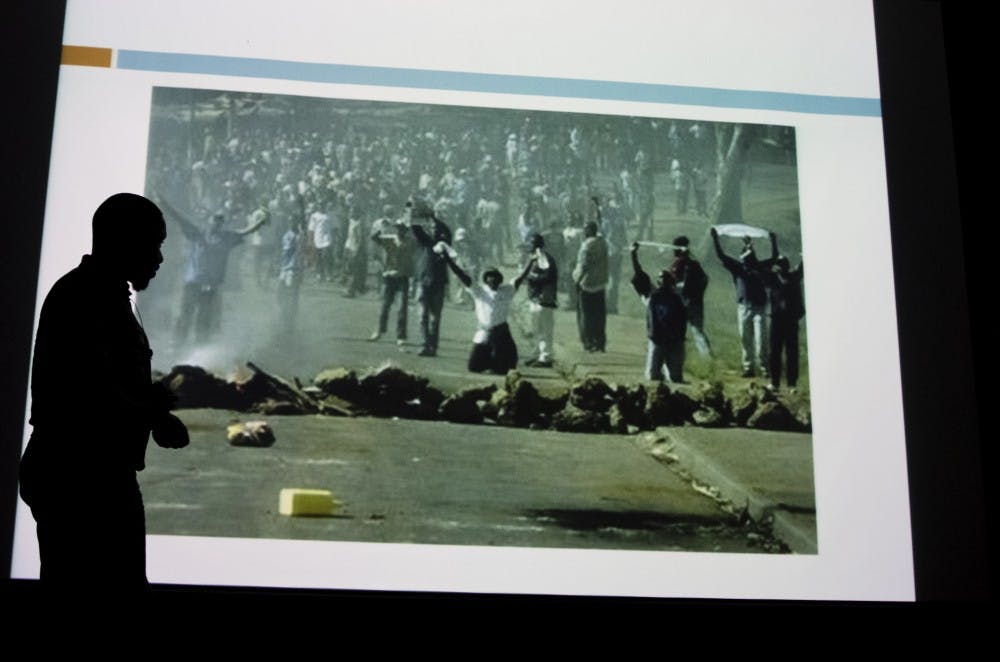Film screening educates students on Rwandan genocide

He thought quickly, then let out a stammered stream of words.
Trying to express his thoughts on coping with years of history, violence and loss from the warring and eventual killing of Tutsis by the Hutus, known as the Rwandan genocide, graduate student and Rwanda native Filius Uwishema finally came to a conclusion.
"There is no interest in people hating each other," Uwishema said, having just left a screening of "ICYIZERE: Hope" held in Anspach Hall Monday night.
He did not directly experience the genocide, but was directly affected by its consequences, having lost many friends and relatives.
"My wife is a survivor," he said. "She's the only one left out of a family of 11 people."
Shot, edited and released by filmmaker Patrick Mureithi after spending time in the African nation in 2007, he showed the film in many cities across Rwanda and at the Rwandan Film Festival in 2008 and 2009.
Focusing on a meeting of 10 survivors of the 1994 genocide and 10 perpetrators of it, the film identifies the struggles of both groups to come to peace with what occurred.
"I felt like I lost my faith in humanity; the goodness of man," Mureithi said to a crowd of about 100.
During the making of the film, Mureithi said he went through depression after hearing so many stories of personal and communal devastation.
"My grief is what propelled me to make such a film," he said.
He was 17 in Nairobi, Kenya, at the time of the genocide, yet had no idea it was going on but knew about other cultural events around the world.
"I do not remember hearing anything about the Rwandan genocide," he said. "I heard about the death of Nirvana singer Kurt Cobain, the World Cup held in the United States."
The genocide of nearly one million people occurred in just 100 days at a rate of 10,000 people a day, 460 an hour and seven people every night, Mureithi said.
One story in the film focuses on a woman named Solange, who organized the support group filmed by Mureithi.
At the age of 14, when the genocide occurred, she lost her cousins and her parents.
"I never said farewell to them," she said in the film. "I never thought I would escape."
The film also focuses on a perpetrator of the killings, a man named John.
He, over time, begins to reconcile within himself and, with the help of the group, with what happened then and how it effects him now.
"I thought what happened in Rwanda was a mistake," John said. "I couldn't believe people could do that to each other."
During a question and answer session after the film, Uwishema spoke at length about the impact the film had on him as a person, not just as a Rwandan.
He said his country needs reconciliation to help come to terms with what happened and said humans have a lot of the same beliefs.
"We speak the same language, have the same culture and moral values," he said. "We share everything"



